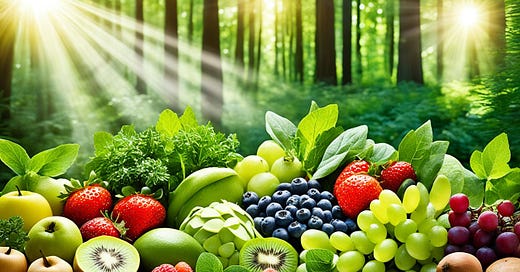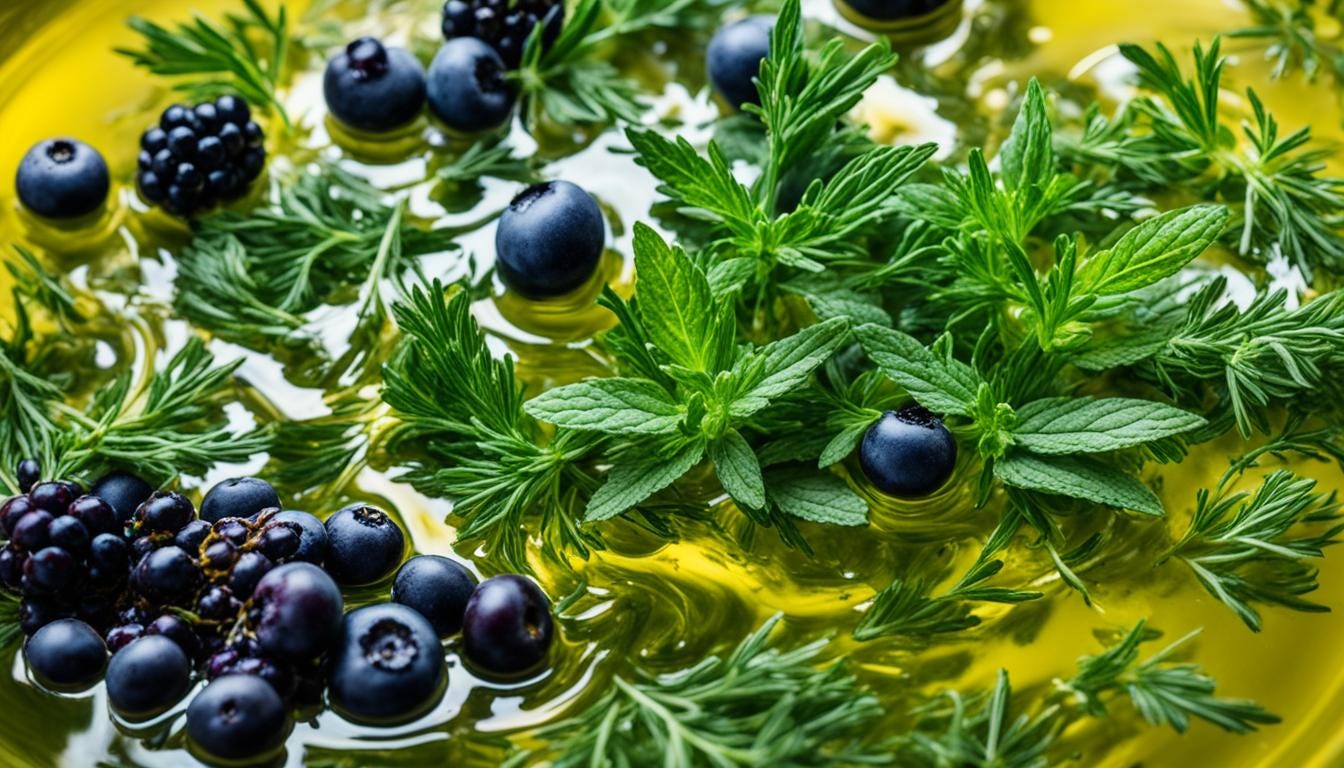Polyphenols are a special type of organic compound found in plants. They have multiple phenolic rings and are crucial for plant health as they help protect from ultraviolet radiation and pathogens like viruses and bacteria.
These compounds are also good for humans. They are known for fighting off harmful free radicals in our bodies which help prevent diseases and can even stop cancer cells from growing.
Scientists have a keen interest in polyphenols because of the many benefits including keeping our cells healthy and helping us manage our weight which makes them a key area of study.
Polyphenols are the most abundant antioxidants in our diet and have been linked to a lower risk of chronic diseases.
Types of polyphenols
They come in many forms, each with special traits and roles. The main groups include flavonoids, phenolic acids, and those classified as other types.
Flavonoids are the most common, making up about 60% of all these compounds. They include quercetin, kaempferol, catechins, and anthocyanins, mostly found in fruits which are known for their strong antioxidant effects and help keep the heart healthy. Phenolic acids make up around 30% and include stilbenes and lignins, mostly in vegetables and have their own health benefits, such as reducing inflammation and supporting brain health.
Polyphenolic amides, like capsaicinoids in chili peppers, have unique properties and health benefits too. Resveratrol and ellagic acid, found in grapes, wine, and berries fall within the other types and are studied for their antioxidant and anti-ageing effects. These different types of polyphenols help protect us with each adding to the health perks of eating foods rich in polyphenols.
Health benefits
Polyphenols are great for our Cardiovascular health as they help control blood pressure, make blood vessels more flexible, and reduce inflammation. These actions lower the risk of heart attacks and strokes.
Cellular inflammation is the root cause of almost every known condition and disease including arthritis, autoimmune diseases and some cancers so by lowering inflammation, polyphenols can help ease symptoms and improve health.
Polyphenols in food
Fruits and vegetables like blueberries, raspberries, and strawberries are full of polyphenols together with apples, grapes, citrus fruits, and peaches which are also good sources. Vegetables such as asparagus, broccoli, carrots, onions, and leafy greens are packed with these compounds too.
Herbs and spices also contain polyphenols, examples being basil, oregano, rosemary, turmeric, and cinnamon. These ingredients add flavour and boost the nutritional value of our meals.
Nuts and seeds like almonds, pecans, walnuts, and flaxseeds are another good source as they are tasty and help increase our intake of these beneficial compounds. Adding a mix of fruits, vegetables, herbs, spices, nuts, and seeds to our meals is a great way to enjoy the health benefits of these natural antioxidants.
Listen to Dr Ann explain The Power of Polyphenols:
Eating a diet rich in polyphenol-containing foods is one of the simplest and most effective ways to support overall health and well-being.
Polyphenol-rich beverages
Certain drinks are a great source of polyphenols, not just foods.
Many people love coffee for its taste but it also contains chlorogenic acids which are strong antioxidants. Black and green tea are full of flavonoids whilst red wine gains more polyphenols during fermentation which has resveratrol, also good for the heart and can help you live longer.
Extra virgin olive oil is a natural fruit juice packed with polyphenol compounds, the main ones being oleuropein, oleacein, and oleocanthal which are key to the Mediterranean diet's heart health benefits.
Recommended dietary intake
Research shows that eating over 650 milligrams of polyphenols daily can lower the risk of illness and death. To get this amount, eat a variety of foods high in polyphenols including fruits, vegetables, herbs, spices, nuts, seeds, and drinks like coffee, tea, and red wine. Eating a mix of these foods will ensure you take in different types of polyphenols and this not only boosts your health benefits but also lowers your disease risk.
A diet rich in polyphenol-containing foods may be the secret to longevity and overall well-being.
Beware: The supplement con
Many retailers who supply products claiming the ingredients include polyphenols often only contain polyphenol extract or trace amounts instead. This is because using pure polyphenols would reduce the profit margins and shorten the shelf-life of these products so it is always important to check the labelling before purchasing.
Conclusion
Polyphenols are powerful antioxidants found in plants. They have caught the eye of scientists for their health benefits as these compounds help with heart health, reduce inflammation, fight cancer, and boost brain function.
Eating a balanced diet full of foods rich in polyphenols is key. Foods like fruits, vegetables, herbs, spices, nuts, and seeds are great sources. While supplements can help in some cases, eating whole foods is best for getting these benefits.
Footnote
If you have found this post informative, many similar topics are covered within the Knowledge Vault of our Private Members Community which you can explore here.
Source Links
Healthy Foods High in Polyphenols - https://www.webmd.com/diet/foods-high-in-polyphenols
Polyphenols - Nature’s powerful antioxidants | Agriturismo Magna Grecia - https://magnagrecia.gr/polyphenols-natures-powerful-antioxidants/
Polyphenols: The Powerful Antioxidant You Didn’t Know You Needed - https://thepaleodiet.com/polyphenols-the-powerful-antioxidant-you-didnt-know-you-needed/





